In today’s job market, it can be challenging to stand out from your peers and get noticed by employers. Statistics show that job competition remains high, with more than two million job seekers entering the marketplace every month. You must have a standout resume to help you stand out in this competitive environment and get the attention of hiring managers at accounting and finance companies. A practical overview will make potential employers notice you as a candidate and allow you to showcase your skills, experiences, and education to make you look like an ideal candidate for employment. With that in mind, a resume is your first chance to make a great first impression on potential employers. A well-written resume that conveys your abilities and experience can open doors for you when searching for accounting or finance jobs. That’s why we’ve put together this helpful guide on how to write a practical accounting and finance resume – complete with examples of excellent resumes from real professionals in the field.
Accounting and Finance Resume Example

Download This Accounting and Finance Resume as PDF
Accounts Payable Specialist Resume Example
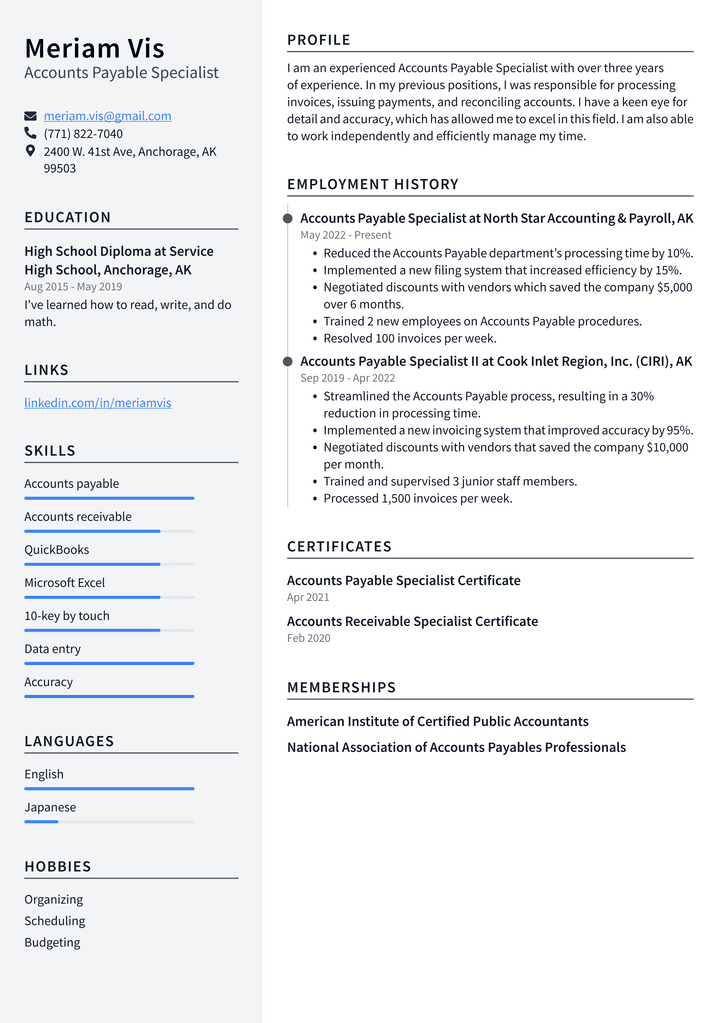
Download This Accounts Payable Specialist Resume as PDF
Accounts Receivable Specialist Resume Example
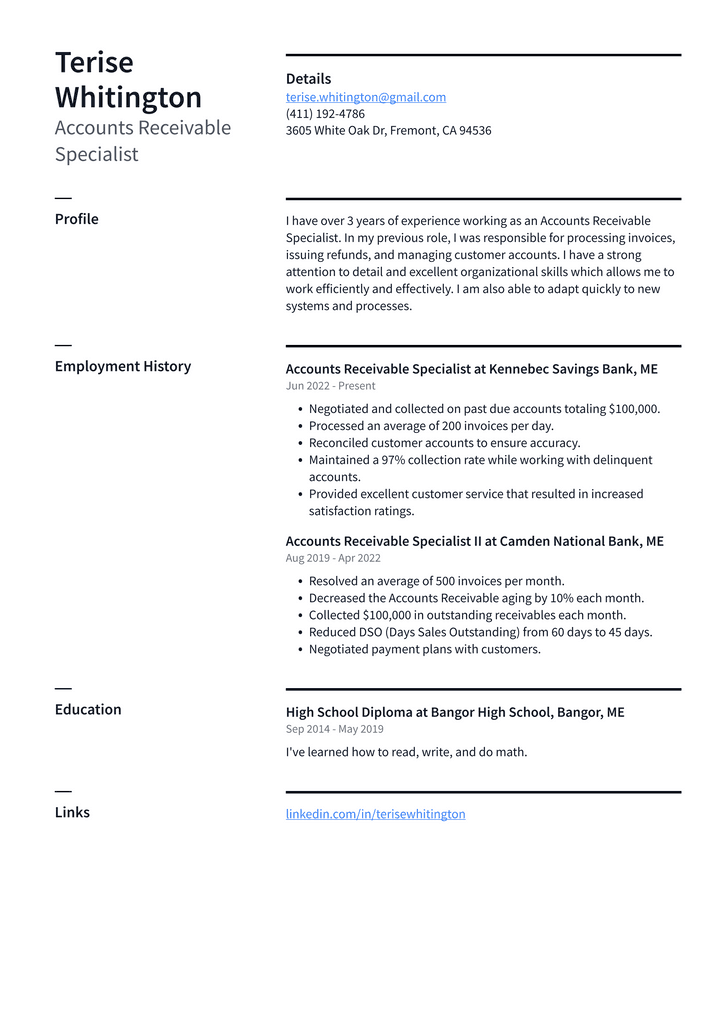
Download This Accounts Receivable Specialist Resume as PDF
Controller Resume Example
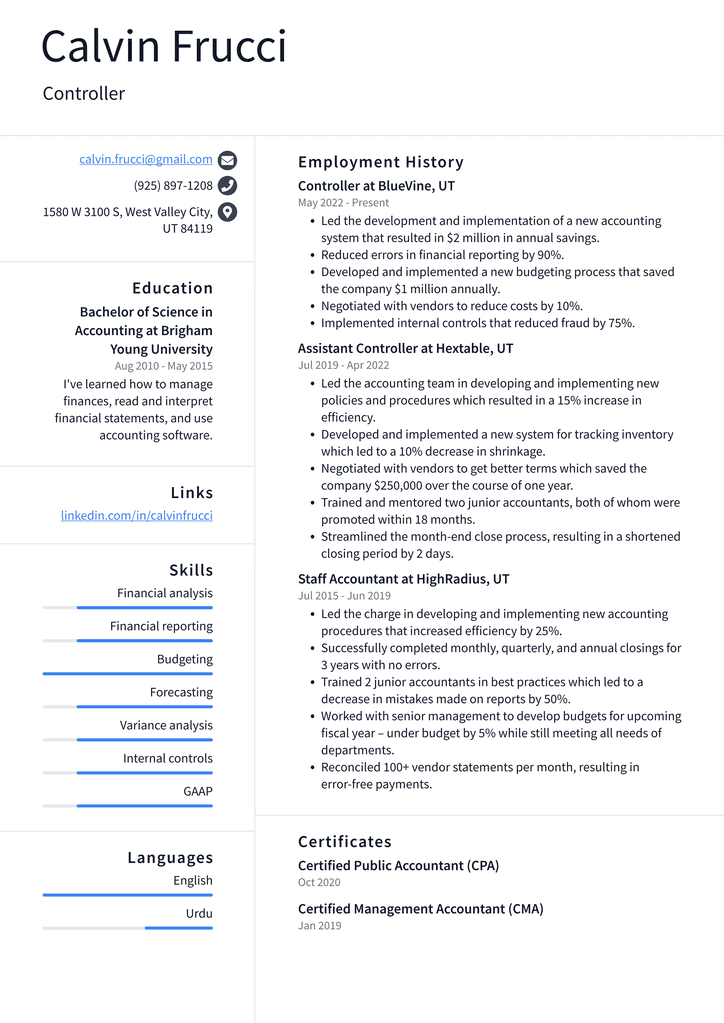
Download This Controller Resume as PDF
Payroll Specialist Resume Example
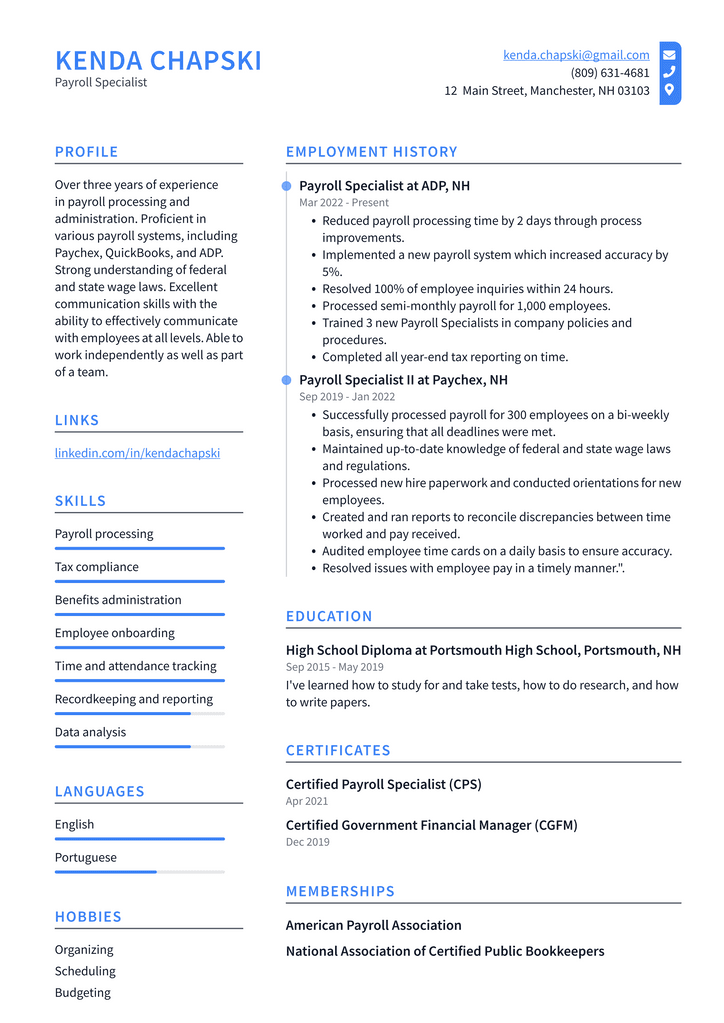
Download This Payroll Specialist Resume as PDF
Bookkeeper Resume Example
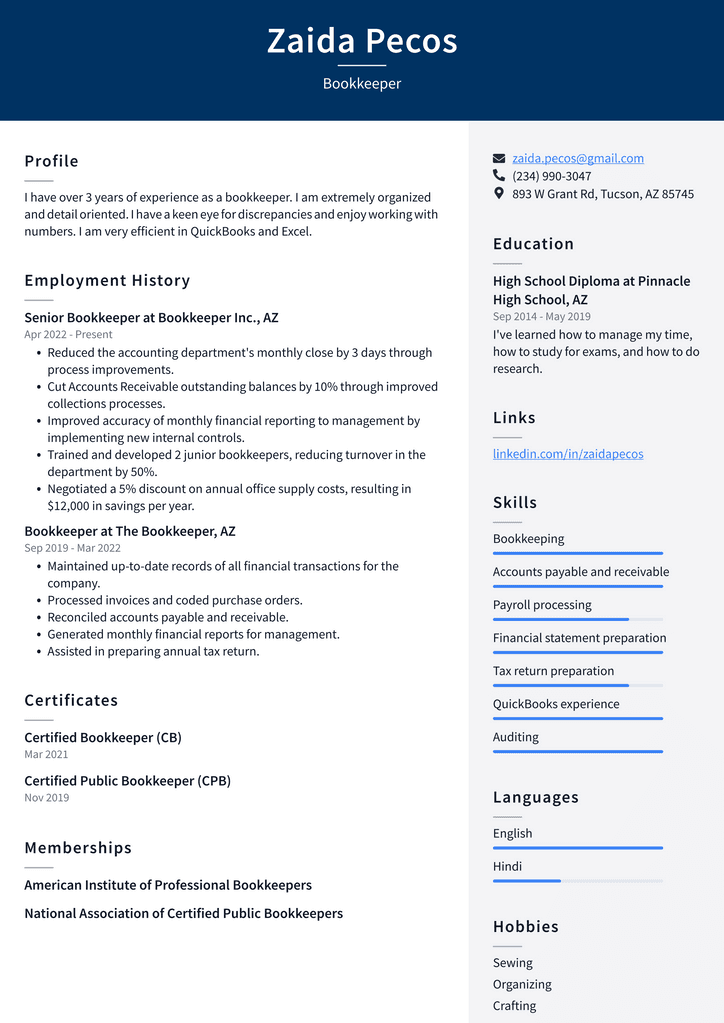
Download This Bookkeeper Resume as PDF
CFO Resume Example
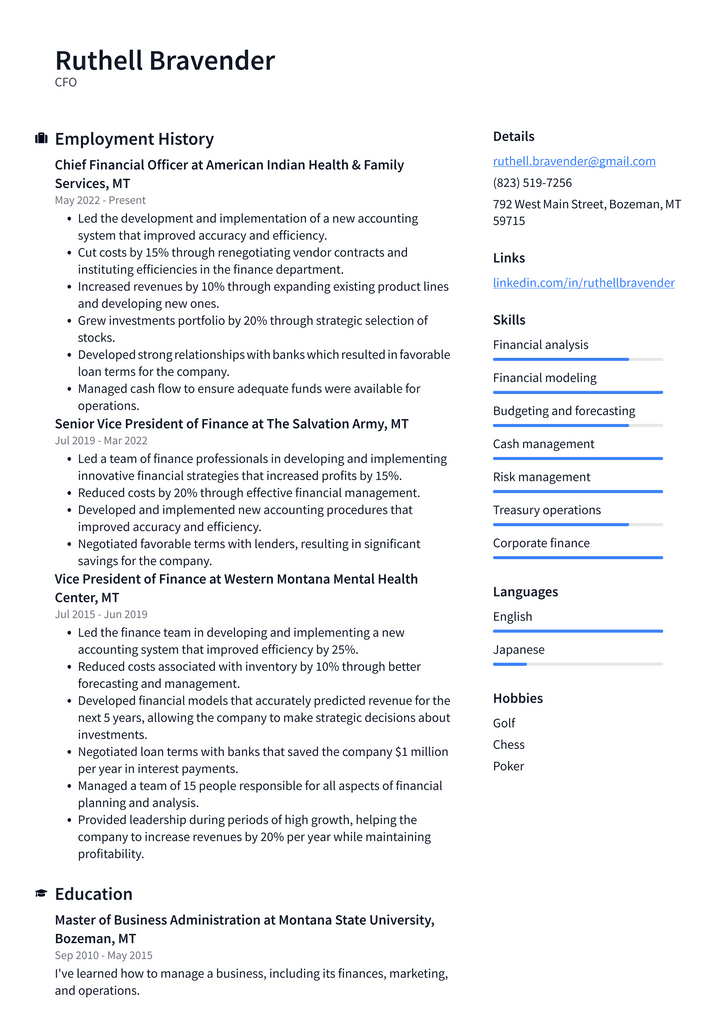
Download This CFO Resume as PDF
What Is a Resume?
A resume, also sometimes called a CV, is a document that summarizes your experience, education, and skills as they pertain to the job you’re applying for. Resumes are a critical part of your job application process and are typically the first thing potential employers see when applying for a job. They are meant to summarize your experience and showcase your skills so potential employers can get a sense of who you are and whether you’d be a good fit for their company. A resume is typically one or two pages long and is broken into different sections that display your relevant experience, education, and skills. There are many types of resume formats; some will allow for more or more minor detail than others. For example, the popular chronological resume format displays your work history and experience. In contrast, the skills-based resume format highlights your skills and qualifications without focusing on your work history.
Why Is a Good Accounting and Finance Resume Important?
If you want to become employed and earn a good salary, you need to be able to sell yourself to a potential employer. Your resume is your single most crucial tool for doing so. Your resume is often your first point of contact with a potential employer, so it must make a great first impression. A well-written and well-presented resume can help you get your foot in the door for job opportunities and secure a job interview. When you apply for a job, you will likely be competing with other job seekers, some of whom might be more qualified than you are. A good resume can help set you apart from the competition and show hiring managers you have what it takes to earn employment in the field. A well-written and well-presented resume can give you a leg up over other candidates and help you get noticed.
Critical Elements of an Effective Resume
– Professional format – The first thing to consider when writing your resume is what format to use. While there are many types of resume formats, it’s best to go with one that is standard and professional. Popular resume formats include chronological, functional, hybrid, skills-based, and portfolio. Whichever format you choose, make sure that it’s neat and error-free to help you get noticed. – Detailed content – The next thing to look at when writing your resume is the content. You’ll want to include a wide variety of information, from your job history to your skills and experiences. Your resume should show off your strengths and make you stand out among other candidates. Include your most relevant skills and experiences, your education, and any other notable items on your resume. – Accurate information – Another essential element of a good resume is accuracy. You don’t want to make any false claims or embellishments, as this could be grounds for dismissal. Instead, you should include only accurate information that highlights your best qualities. Make sure your resume accurately reflects your education, skills, and experience.
Writing a Good Resume: Step-by-Step Guide
Before you dive straight into writing your resume, you’ll want to list all of the relevant experience, skills, and education you want to include in your resume. This will help you organize your thoughts and decide what goes on your resume. Once you have your list of items, you can start to write your resume. To help you get started, here is a step-by-step guide to writing an effective resume:
- Set up your resume with an attention-grabbing header. Your header should include your name and contact information, as well as the job title you’re applying for. Ensure all this information is correct and up-to-date, as it’s critical to making an excellent first impression.
- Include an overview of yourself. Your resume should include an overview of yourself, including your work history, education, skills, and any other information that might be relevant. Make sure you include all of your relevant skills, experience, and education, as well as any languages you speak or special certifications.
- Mention your education. In addition to your experience, you should include your education on your resume. You can either list your degrees and certifications or include a general line such as “Education: Bachelor’s degree in accounting.”
- Include the skills you used in each job. When mentioning each job on your resume, include the skills you used in that job. Doing so will help hire managers to see how your skills apply to their company and what you can do for them.
- Add a list of relevant job skills. In addition to including your skills in each job, you might also want to include a list of relevant skills relevant to any industry. This will help hire managers to see their skills and how they can apply them to their company.
- List your job history. Your job history should be listed chronologically and include the name of the company, your job title, and the start and end dates of your employment.
- Include a section for additional info. You can include a section at the end of your resume for additional information, such as interests, skills, references, or other pertinent information. Make sure this section is straightforward to read and doesn’t detract from the rest of your resume.
Bottom line
When you write your resume, make sure that you take the time to highlight your skills, education, and relevant experience. Doing so can help to hire managers to see how you can be a valuable asset to their company. In addition, following these tips and writing a well-organized, attention-grabbing resume can increase your chances of getting the job you want. Whether you’re just starting in the field or looking to make a career change, having a great resume is critical to getting noticed by employers in the accounting and finance industry. Now that you know what goes into a good accounting and finance resume, you can start writing your own. With a well-written resume, you’ll be able to show employers who you are and why you’re the perfect person for the job. With this vital document, you can open doors and make sure employers know you’re the one they should hire for their open positions.